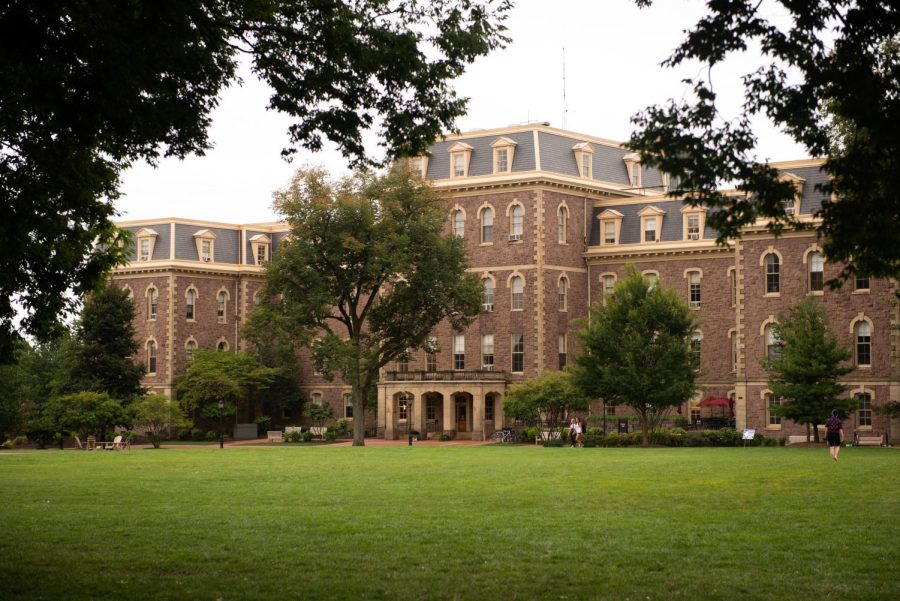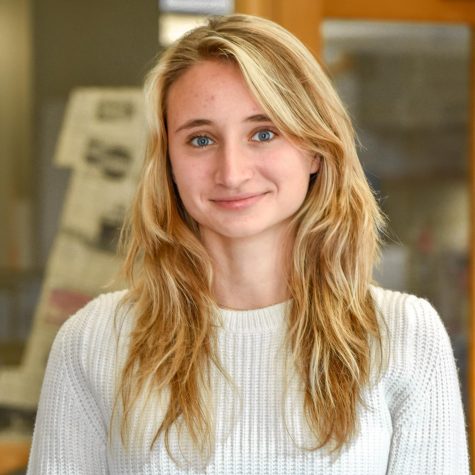After the passage of a handful motions at a on April 26, a new faculty committee structure will go into effect in the 2023-2024 academic year.
The new structure involves cutting back on the number of current committees and members. Currently, there are 16 faculty committees with 97 faculty members. Beginning in fall 2023, there will be six faculty committees and one council, totaling 49 faculty members.
Spearheaded by the Faculty Governance Committee, these changes have been in the works since 2019 but were paused for a year due to the pandemic.
These changes include dissolving the Student Conduct Committee, as there is no standalone office of student conduct at Lafayette. Additionally, the Faculty Diversity Committee will be replaced with a campus-wide diversity committee spearheaded by President Nicole Hurd.
The newly created Advocacy and Coordination Council will organize meetings for chairs of the different committees on a regular basis in order to coordinate their work and advocate for different interests, according to Religious Studies Professor and current Faculty Governance Committee Chair Brett Hendrickson.
Continuing committees include Appeal & Grievance with five faculty, Promotion, Tenure & Review with 10 faculty and Governance with seven faculty. New committees include Academic Standard with nine faculty, Educational Policy with nine faculty and Faculty Affairs and Resources with nine faculty.
“Not just the faculty, all sorts of components of the campus community, I think are a little bit frustrated with the system of shared governance and where it was going,” Government & Law Professor and member of the Faculty Governance Committee, Andrew Clarke, said. “Not for any one particular person or groups, actions or things like that, but just because the system is kind of antiquated. The college has changed and grown a lot. It was kind of time for a significant change.”
“I think having slightly larger bodies that review a slightly larger charge on a much more ongoing basis is a recognition of that reality, and I think it’s a change for the better,” Psychology Professor Jennifer Talarico added.
Talarico served as chair of the Faculty Governance Committee in 2013, the last time there were substantive revisions to the structure and composition of the elected faculty committees.
“I certainly think that our current structure was not working effectively…We’ve got to try something, and we will learn from this, and we will tweak it. And if we recognize things that continue to be broken, we can revise it again,” Talarico said.
Clarke said that with so many faculty members doing work in different spaces, it was difficult to know who to reach out to with a particular issue or concern.
“My perspective is somebody who studies like legislatures, congressional activity outside of the service stuff. It was a very fragmented committee system,” Clarke said. “When you’re narrowly focused on one part of a problem or an issue or some project you want to make the college better, sometimes you miss the full picture.”
“Having a more centralized system of the larger committees, I think kind of clarifies the voice of the faculty in a system of shared governance and also gives members of those faculties a broader range of insights to consider…problems and issues,” he continued.
The Faculty Governance Committee worked on these changes for the past three years, gathering information from committee chairs. The committee held four community meetings in March and April to present their proposal and gather feedback.
“When you hold an open meeting…for faculty, you’ll get a few people to show up, but you know, it’s more almost like a pro forma kind of thing,” Hendrickson said. “We did this, and we had dozens of people come…So we carefully took notes, and all that public commentary really helped us move from an initial idea to where the motions finally ended up.”
In the end, the proposal passed lopsidedly in favor of the new structure.
Hendrickson said that the fact that the changes were passed so handily suggested that “it was a good time for a change.”
Over the course of the next year, the Faculty Governance Committee will be tasked with helping dissolve current committees and electing faculty for the 2023-2024 academic year from the ground up.
“[The Faculty Governance Committee is] hoping to work with the administration to secure more professional development funds to help make sure that piece of faculty members who do a lot of service in this capacity are able to hit the ground running on their scholarship once they’re relieved of some of those service obligations and duties,” Clarke said.
While service remains an important part of being a faculty member at Lafayette College, with such a large governance structure involving many members, professors often have less time to spend on research.
“There’s lots of other service and mentorship work done outside of what we were tasked with doing with this committee system,” Clarke said. “I think that the campus community in general needs to think hard about how to reward often invisible kind of labor that makes a big difference in student experience, kind of even above and beyond the committee system.”
“I’m definitely optimistic about what we’ve done, because it is a major change, and I think it’s one in the right direction,” he added.






































































































